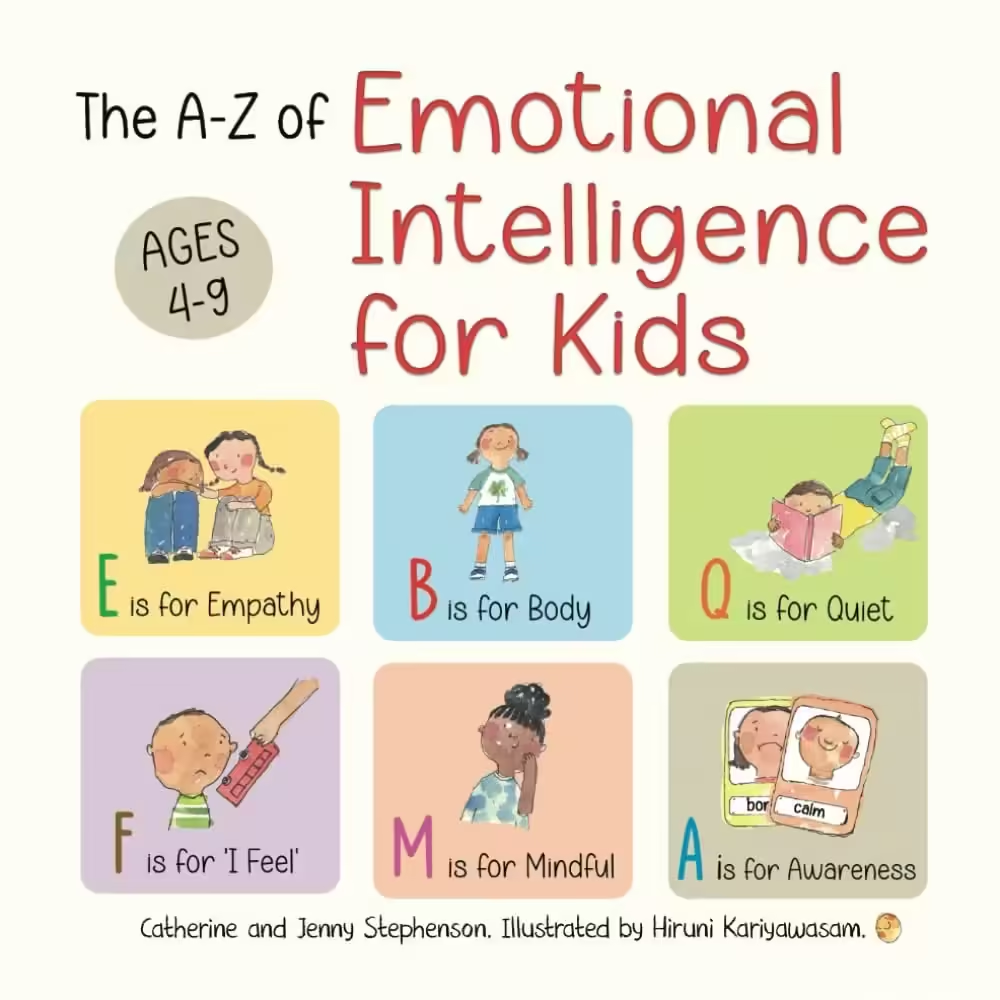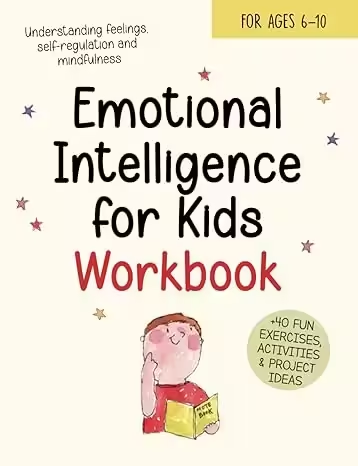Social Emotional Learning (SEL) is a crucial aspect of education that focuses on developing essential life skills such as self-awareness, emotional regulation, and empathy. In recent years, there has been a growing recognition of the importance of SEL in fostering holistic development in children and adolescents. By integrating SEL into educational practices, we can help young learners navigate the complexities of their emotions, build strong interpersonal relationships, and achieve academic success.
This article explores the top ten benefits of incorporating SEL books into educational curricula. From enhancing self-awareness to preparing children for future challenges, SEL books offer a comprehensive approach to developing essential social and emotional skills. Additionally, we will highlight two highly recommended SEL books from our collection and reference external sources to underscore the effectiveness of SEL in education.
1. Enhances Self-Awareness
Self-awareness is the ability to recognize and understand one’s own emotions, thoughts, and values, as well as how they influence behavior. Developing self-awareness is a foundational skill for personal growth and emotional intelligence. SEL books provide engaging stories and activities that help children reflect on their feelings and behaviors, fostering a deeper understanding of themselves.
Through relatable characters and scenarios, SEL books encourage children to identify and label their emotions, recognize their strengths and weaknesses, and understand the impact of their actions on others. By enhancing self-awareness, these books empower children to make more informed decisions and develop a stronger sense of self.
2. Improves Emotional Regulation
Emotional regulation refers to the ability to manage and respond to emotional experiences in a healthy and constructive manner. It is a critical skill that helps children navigate challenging situations and maintain emotional balance. SEL books offer practical strategies and tools for children to practice emotional regulation.
Through engaging narratives and interactive exercises, SEL books teach children how to recognize their emotions, understand the triggers behind them, and employ techniques such as deep breathing, mindfulness, and positive self-talk to manage their reactions. By improving emotional regulation, these books help children develop resilience and reduce stress, leading to better overall well-being.
3. Strengthens Social Skills
Social skills are essential for building positive relationships and functioning effectively in social settings. These skills include communication, cooperation, conflict resolution, and empathy. SEL books play a significant role in teaching children how to interact with others in a respectful and empathetic manner.
Through stories that depict various social situations, SEL books provide children with examples of appropriate social behavior and problem-solving techniques. Activities and discussions prompted by these books encourage children to practice active listening, express themselves clearly, and collaborate with peers. Strengthening social skills through SEL books prepares children for success in both personal and academic aspects of their lives.
4. Boosts Academic Performance
There is a strong connection between SEL and academic success. Research has shown that students who participate in SEL programs demonstrate improved academic performance, including higher grades and better test scores. SEL books contribute to this by fostering a positive learning environment and equipping students with essential skills for academic achievement.
By enhancing self-awareness, emotional regulation, and social skills, SEL books help create a classroom atmosphere that is conducive to learning. Students who can manage their emotions, resolve conflicts, and work collaboratively are more likely to be engaged and motivated in their studies. Additionally, SEL books provide tools for setting goals, managing time, and staying focused, all of which contribute to academic success.
5. Encourages Empathy and Compassion
Empathy and compassion are crucial for building strong, positive relationships and fostering a supportive community. SEL books are effective in promoting these qualities by helping children understand and share the feelings of others.
Through stories that highlight diverse perspectives and experiences, SEL books encourage children to step into the shoes of different characters and consider their emotions and viewpoints. Activities and discussions inspired by these books further reinforce the importance of empathy and compassion in everyday interactions. By nurturing these qualities, SEL books help children develop a deeper sense of connection and kindness towards others.
6. Reduces Behavioral Problems
Behavioral issues such as aggression, defiance, and disruptive behavior can significantly impact the learning environment. SEL books offer proactive strategies for addressing and reducing these problems by teaching children how to manage their emotions and behavior constructively.
Through relatable stories and practical exercises, SEL books provide children with tools for recognizing and regulating their emotions, understanding the consequences of their actions, and developing positive coping mechanisms. By promoting self-awareness, emotional regulation, and social skills, these books help reduce the incidence of behavioral problems and create a more harmonious classroom environment.
7. Fosters a Positive School Climate
A positive school climate is characterized by a supportive, respectful, and inclusive environment where students feel safe and valued. SEL books contribute to fostering such a climate by promoting social and emotional well-being among students.
By integrating SEL books into the curriculum, schools can encourage positive interactions, reduce conflicts, and build a sense of community. These books provide students with the skills to communicate effectively, resolve conflicts peacefully, and show empathy towards others. As a result, SEL books help create a school environment where students feel connected, respected, and motivated to learn.
8. Supports Mental Health
Mental health is a critical aspect of overall well-being, and SEL books play a vital role in supporting the mental health of children and adolescents. By teaching essential skills such as emotional regulation, self-awareness, and stress management, SEL books help children build resilience and cope with life’s challenges.
Through engaging narratives and practical exercises, SEL books provide children with strategies for managing anxiety, stress, and other emotional difficulties. By promoting a positive mindset and encouraging healthy coping mechanisms, these books contribute to better mental health and overall well-being.
9. Enhances Communication Skills
Effective communication is essential for success in both personal and academic life. SEL books help children develop strong communication skills by providing examples of effective verbal and non-verbal communication and offering opportunities for practice.
Through stories that illustrate various communication scenarios, SEL books teach children how to express themselves clearly, listen actively, and interpret non-verbal cues. Activities and discussions inspired by these books further reinforce these skills, helping children become more confident and competent communicators.
10. Prepares for Future Challenges
The skills developed through SEL are essential for navigating the challenges of the future. SEL books equip children with the tools they need to face various life situations with confidence and resilience.
By teaching essential skills such as problem-solving, emotional regulation, and empathy, SEL books prepare children to handle conflicts, setbacks, and changes effectively. These books provide children with a strong foundation for future success, both personally and professionally.
Book Recommendations
- The A-Z of Emotional Intelligence for Kids: Emotional Regulation and Wellbeing
- This book offers a comprehensive guide to developing emotional intelligence in children. Through engaging activities and relatable scenarios, it teaches children how to recognize and manage their emotions, build self-awareness, and develop empathy and social skills. It is an excellent resource for parents and educators looking to support the emotional well-being of their children.
- Emotional Intelligence for Kids Workbook
- This workbook provides practical exercises and activities designed to enhance emotional intelligence in children. It covers various aspects of emotional regulation, social skills, and self-awareness, offering hands-on tools for children to practice and develop these essential skills. The workbook is a valuable addition to any educational setting, providing structured and engaging content to support SEL.
Incorporating social emotional learning books into educational practices offers numerous benefits, from enhancing self-awareness and emotional regulation to improving academic performance and preparing children for future challenges. By fostering essential life skills such as empathy, communication, and resilience, SEL books play a crucial role in the holistic development of children and adolescents. We encourage educators and parents to explore and integrate SEL books into their routines, creating a supportive and nurturing environment for young learners to thrive.
External References
- Collaborative for Academic, Social, and Emotional Learning (CASEL)
- CASEL is a leading organization in the field of SEL. According to CASEL, students who participate in SEL programs show improved classroom behavior, an increased ability to manage stress and depression, and better attitudes about themselves, others, and school (CASEL, 2023).
- The Education Endowment Foundation (EEF)
- Social and emotional learning approaches have a positive impact, on average, of 4 months’ additional progress in academic outcomes over the course of an academic year.





